Articles by Iain
Interesting and relevant articles by Dr Iain McGilchrist.
For articles written by others, click here.
Latest articles on Substack

Mind and body – Our biological inheritance should be celebrated by Iain Mcgilchrist
Mind and body Our biological inheritance should be celebrated By Iain McGilchrist September 19, 2025 Leonard Nimoy as Spock in Star Trek: The original series, 1968 | © CBS via Getty Images This is a curiously old-fashioned book. It is genial in tone and aimed at the...
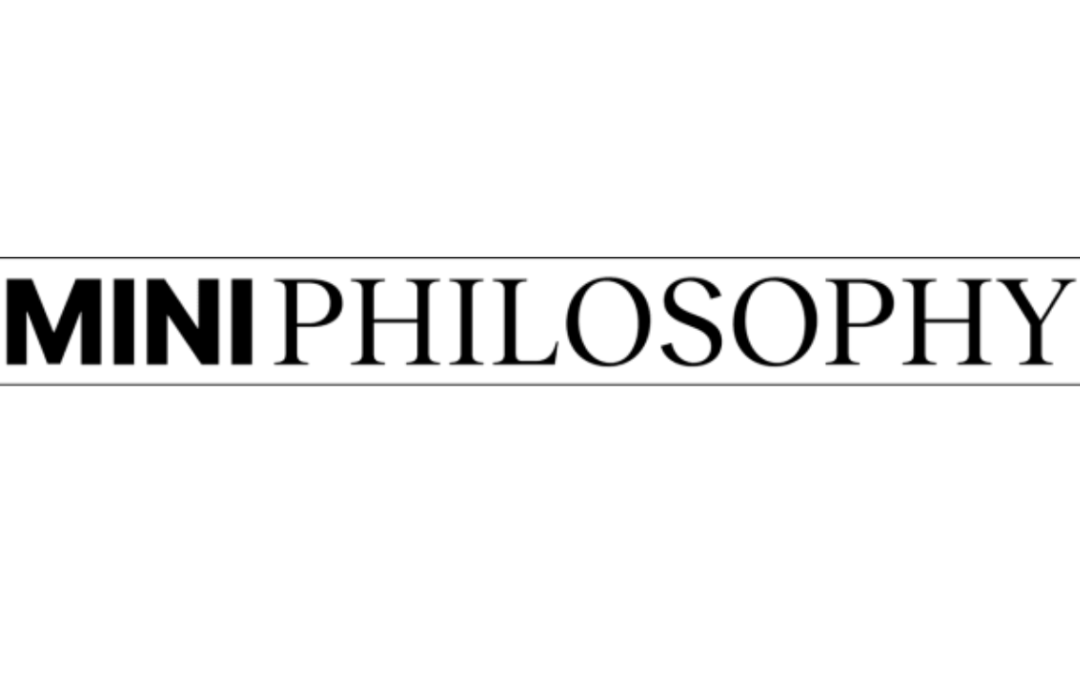
Does Anyone Identify as Evil? by Johny Thomson, Big Think and Iain Mcgilchrist
Jonny Thomson, Big Think, and Iain McGilchrist Hello everybody, This week we’re looking at the nature of evil with Iain McGilchrist. You can find the companion article here: The Nexus Method: How to make the most of what you learn “Evil" is an odd word. You can...
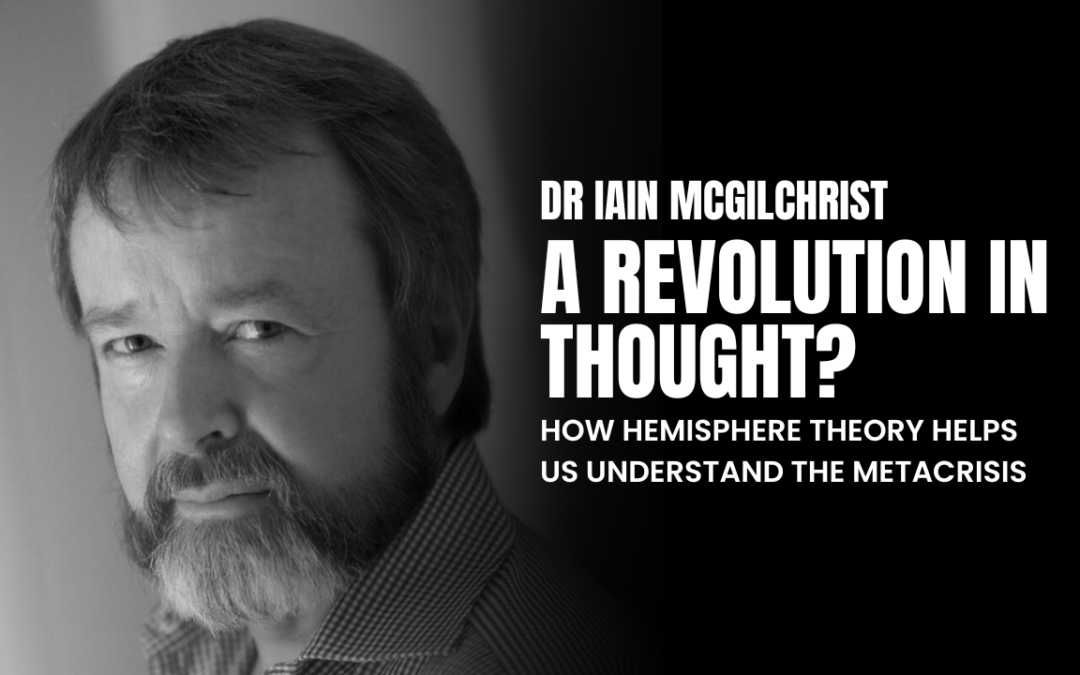
A Revolution in Thought? How Hemisphere Theory Helps us Understand the Metacrisis by dr Iain McGilchrist
Carved into the stone of the ancient temple of Apollo at Delphi was the injunction to ‘know thyself’. Without such knowledge we are tossed this way and that by forces we neither suspect nor understand. Knowing ourselves helps explain our predicament; and doing so is...
PS on works of art – Iain’s Substack
I forgot to mention in the post I have just finished that Simon McBurney’s Figures in Extinction, a dance trilogy choreographed by the Canadian dancer Crystal Pite, is enjoying rave reviews. His theatre and dance company is called Complicité, and you can find out more...

Metaphors can make you blind – Iain’s Substack
Friends, I am new to Substack, so thank you for being patient while I work out how to do what I would like to do! And what is that? Just to add pieces from time to time. No schedule, and therefore no payment required. If you wish to subsidise me, then by all means be...
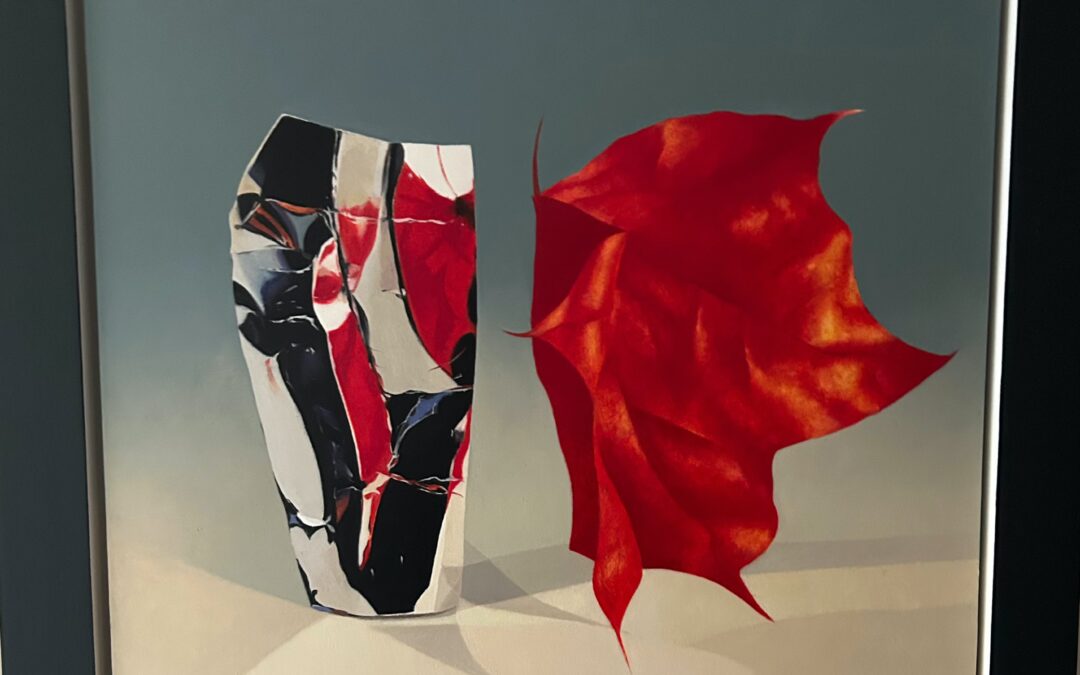
Bread cast on the waters – Iain’s Substack
Boring stuff first: since a number of people have been kind enough to make a gift pledge, I have activated payments (I think!), so that others can, should the mood take them. It is enormously kind of those who are generous enough to do so; but I do want everyone to...
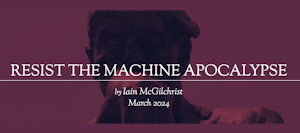
Resist the Machine Apocalypse by Iain McGilchrist – 2024
No two ways about it: We are making ourselves wretched. We are more affluent than ever, but riches—and power, the only point in having riches—do not make people happy. Ask a psychiatrist. Or take a look at the face of Vladimir Putin, who has, alas, the power of life and death over millions of people and is the owner of the most expensive toilet-paper dispenser in the world. No, affluent as we are, we are also more anxious, depressed, lonely, isolated, and lacking in purpose than ever. Why is this? I suggest it is because we no longer have the foggiest idea what human life is about. Indeed, there is a sense in which we no longer live in a world at all, but exist in a simulacrum of our own making.
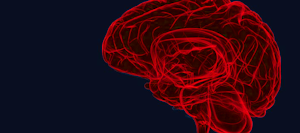
Iain McGilchrist vs Scott Barry Kaufman, The Right Brain is Essential to Creativity: IAINews
In response to Scott Kauffman’s article yesterday arguing the right-left brain hemisphere split isn’t true, the main proponent of the view, Iain McGilchrist responds
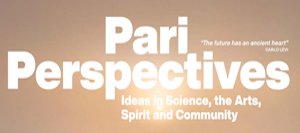
Recovering the Sacred, Recovering the Soul: Session 1 of the ‘Recovering the Sacred’ online series – Pari Perspective
According to Laozi:
He who knows does not tell and he who tells does not know.
The power of unknowing and not doing is celebrated in Chinese philosophy. Also in the Western tradition. For example, Meister Eckhart in one of his sermons speaks of the attainment by the soul of darkness and unknowing and he imagines a bystander asking him:
‘But what is this darkness and unknowing and what is its name?’ To this he replies, ‘I can only call it a loving and open receptiveness which however in no way lacks being. It is a receptive potential by means of which all is accomplished.’
This suggests the fertility of union between a creative principle and a receptive, womb-like space in which something is to grow: a process. It’s of this encounter, this process, that I wish to speak today.
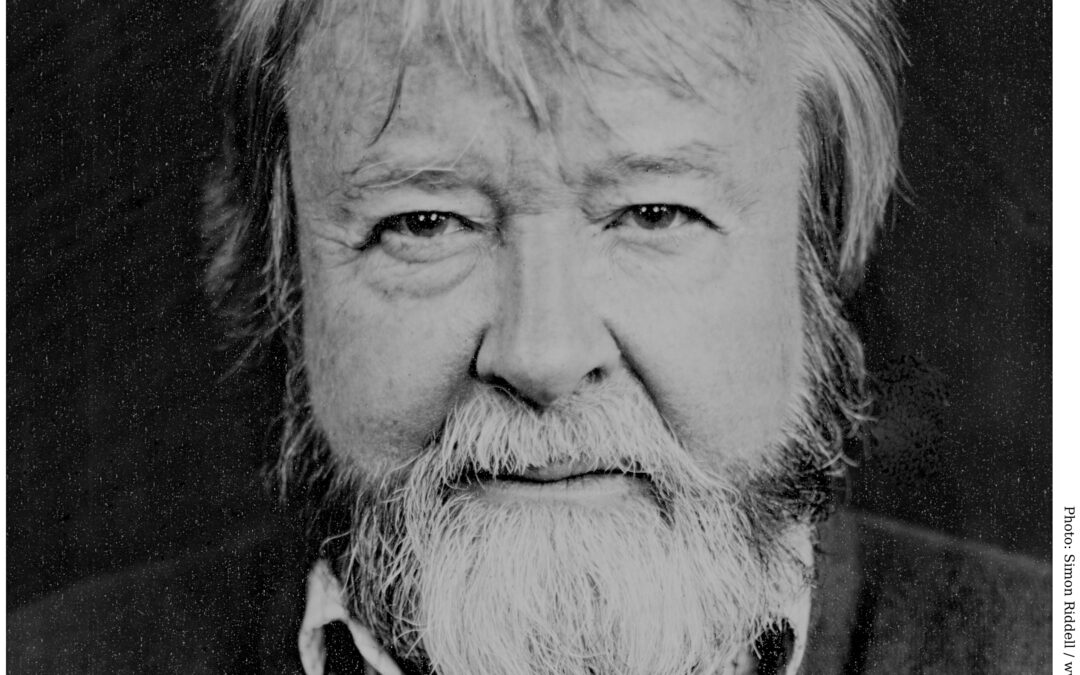
Science and Metaphysics: A Family Quarrel? by Iain McGilchrist – from the Marginalia Review of Books
In the lecture series given in Cambridge in 1951 that formed the basis of his book Science & Humanism, the physicist Erwin Schrödinger observed:
It seems plain and self-evident, yet it needs to be said: the isolated knowledge obtained by a group of specialists in a narrow field has in itself no value whatsoever, but only in its synthesis with all the rest of knowledge and only inasmuch as it really contributes in this synthesis toward answering the demand, τίνες δὲ ἡμεῖς; “Who are we?”
Schrödinger is recalling the words of the third-century Greek philosopher Plotinus; but his point is of a contemporary relevance that it is impossible to overstate. It is reinforced by the words of the neurosurgeon Wilder Penfield, whose work on mapping the brain is renowned: “The problem of neurology is to understand man himself.”
From the Marginalia Review of Books
Thank you for writing with the Marginalia Review of Books. We are delighted to publish your essay, “Science and Metaphysics: A Family Quarrel”, which is available to read and share both as a web-page and PDF.
